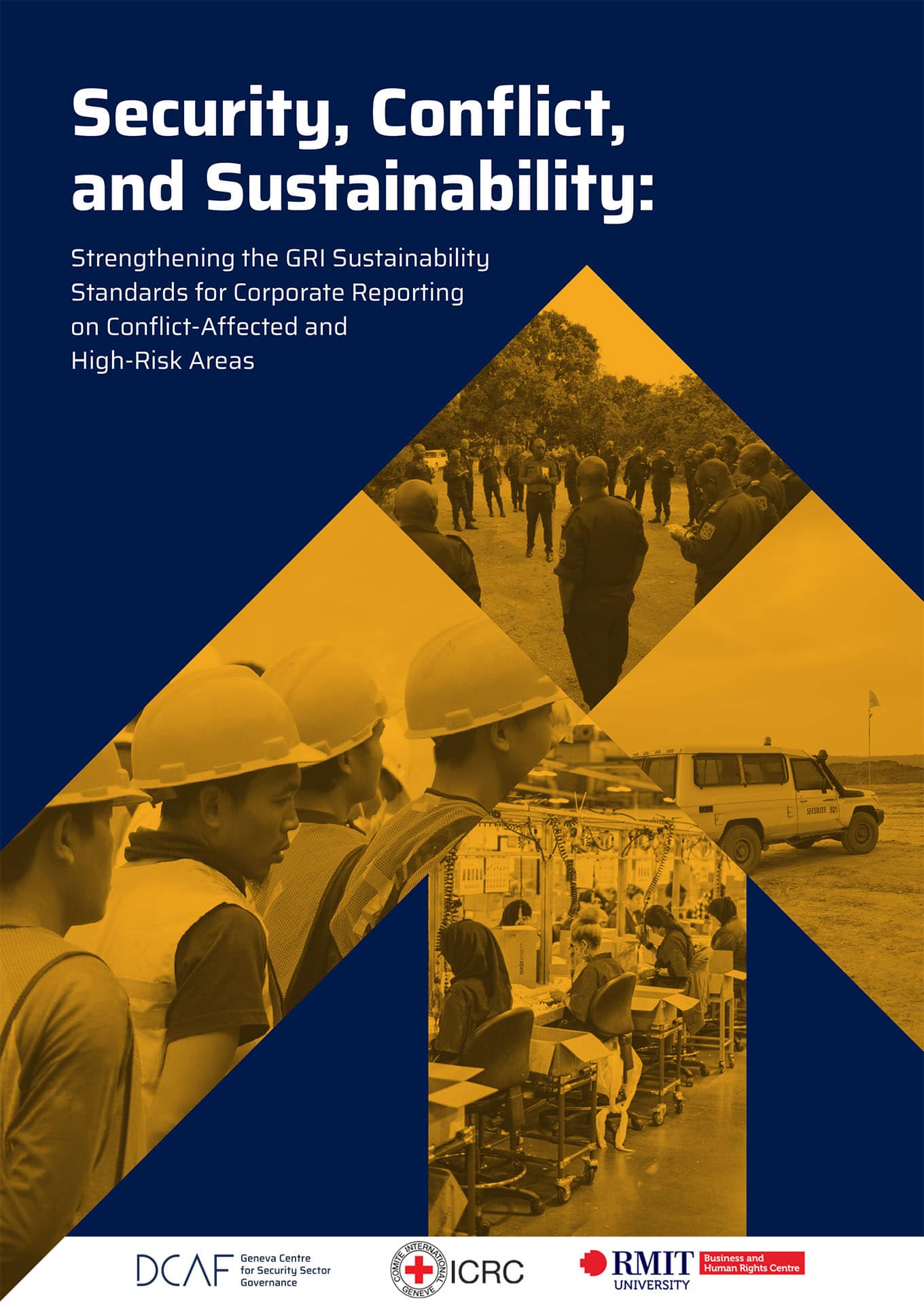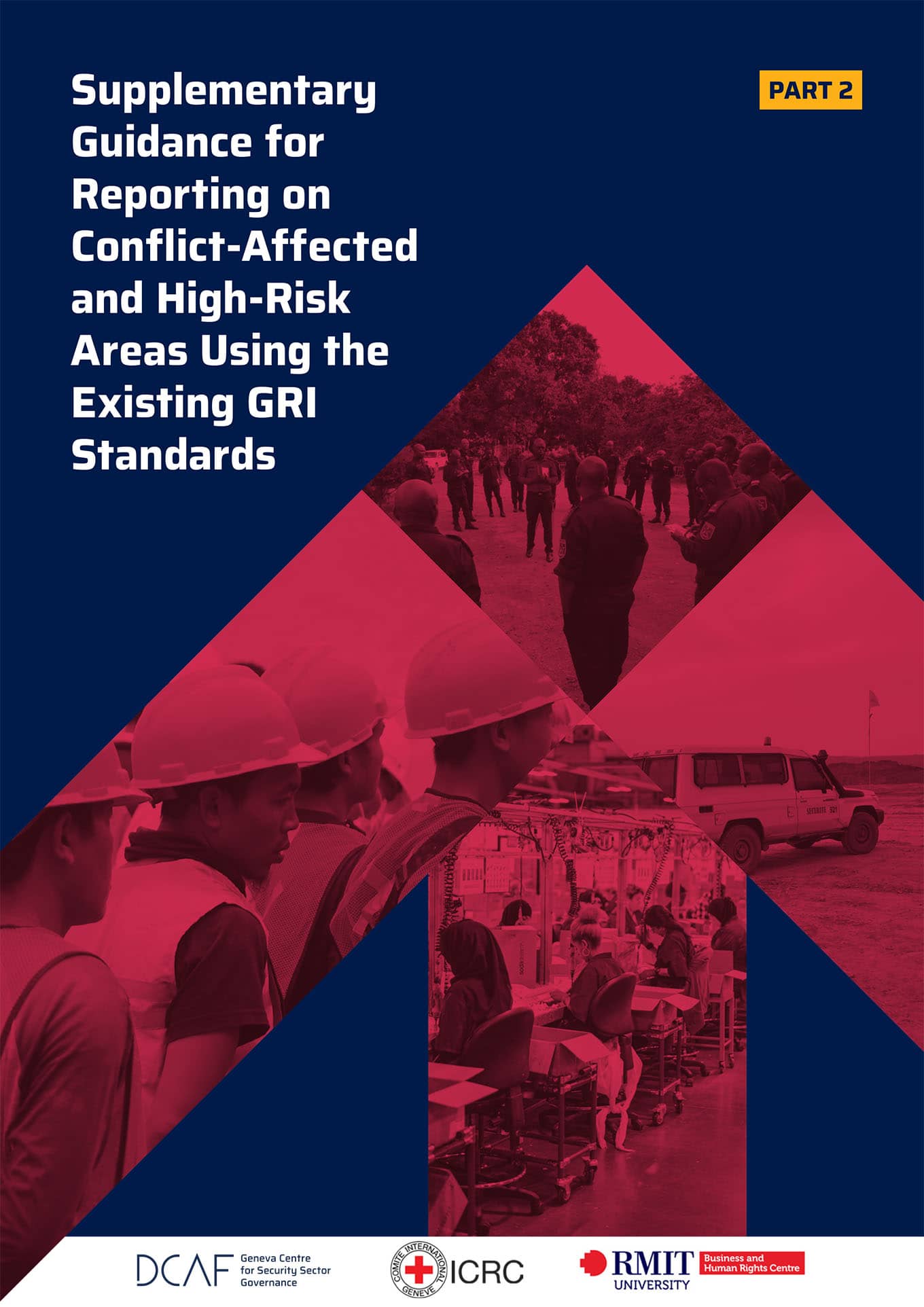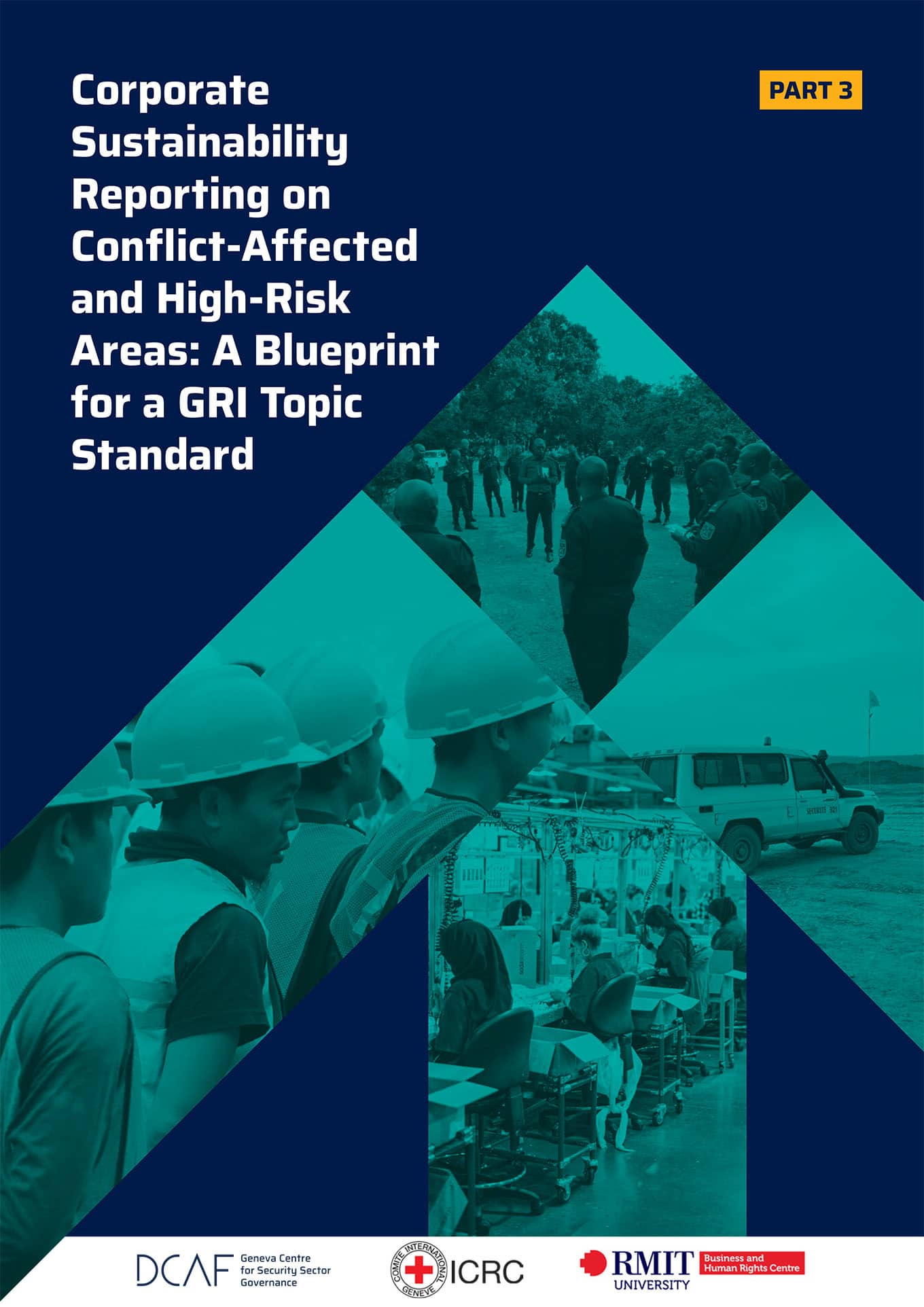Security, Conflict, and Sustainability: Strengthening the GRI Sustainability Standards for Corporate Reporting on Conflict-Affected and High-Risk Areas
Managing human rights-related risks in conflict-affected and high-risk areas (CAHRAs) is challenging for businesses. But it is precisely in these contexts where rights holders and communities are at the highest risk. Comprehensive company sustainability reporting on CAHRAs-related risk management is needed to ensure transparency and protections for rights holders.
The Global Reporting Initiative (GRI) standards are a comprehensive set of standards widely used by companies in reporting their impacts on the economy, environment, and people. Reporting standards like the GRI increase transparency and provide information for affected communities, national regulators, civil society, consumers, and investors about what companies are doing on social issues, including conflict sensitivity and human rights.
DCAF, ICRC and the RMIT Business and Human Rights Centre have developed this report on how the GRI can strengthen reporting requirements on conflict and security related issues. The report analyses:
- How responsible security management, conflict sensitivity, and respect for international humanitarian law (IHL) are covered by the current GRI standards.
- How companies can use the current GRI standards to report on risk management in CAHRAs.
- What more the GRI could do to strengthen reporting requirements on these issues.
How to use the report:
Part 1 is the full mapping and gap analysis of existing GRI Corporate Reporting Standards and their coverage of responsible security management, conflict sensitivity and respect for IHL.
Part 2 provides guidance for reporting on CAHRAs-related operations using existing GRI Standards.
Part 3 is a blueprint for a new GRI Topic Standard for CAHRAs.

Part 1: Full report - Security, Conflict and Sustainability
The Global Reporting Initiative (GRI) is an independent, international organization that publishes the “GRI Standards” – the world’s most prominent and widely used corporate sustainability reporting framework.
PDF(s)
Resource Type
Security
Publication Details
- Author(s): DCAF - The Geneva Centre for Security Sector Governance; International Committee of the Red Cross (ICRC); RMIT University Business and Human Rights Centre
- Publication Date: May 2024

Part 2: Supplementary Guidance for Reporting on CAHRAs using the Existing GRI Standards
What follows is proposed supplementary guidance to be used by entities that are already using the GRI Standards for their sustainability reporting. The guidance should be read in conjunction with, not in lieu of, the existing GRI Standards.
PDF(s)
Resource Type
Security
Publication Details
- Author(s): DCAF - The Geneva Centre for Security Sector Governance; International Committee of the Red Cross (ICRC); RMIT University Business and Human Rights Centre
- Publication Date: May 2024

Part 3: A Blueprint for a GRI Topic Standard
Doing business in conflict-affected and/or high-risk areas of the globe represents a unique challenge for responsible, sustainable businesses.
PDF(s)
Resource Type
Security
Publication Details
- Author(s): DCAF - The Geneva Centre for Security Sector Governance; International Committee of the Red Cross (ICRC); RMIT University Business and Human Rights Centre
- Publication Date: May 2024


